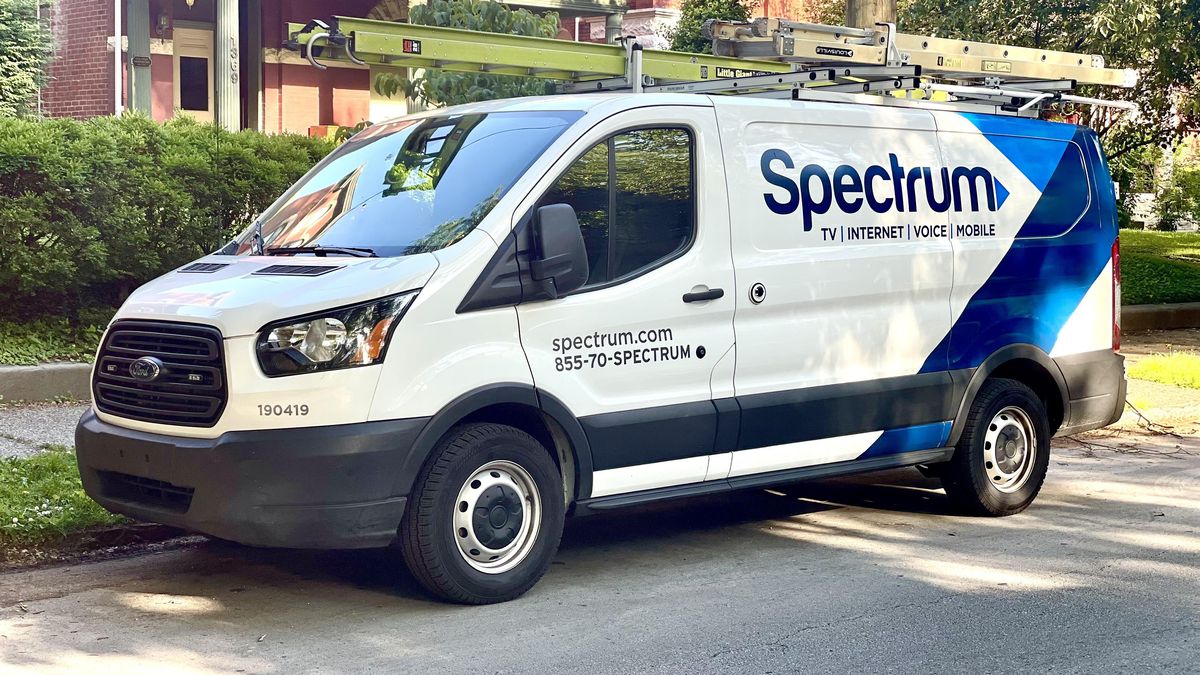Spectrum Internet is one of the largest Internet Service Providers in the United States. It offers services in 42 states of the US, including San Antonio. Spectrum Internet has widespread coverage and includes most urban and suburban areas. With both cable and fiber internet access, a few key benefits make it a top choice in the US.
15 May, 2024 | Posted by: Pablo Mendoza
Category: Deals & Packages, Service Providers | No Comments

Are you looking for the best Internet Services in San Antonio? Then, you are at the right place.
Spectrum Internet is one of the largest Internet Service Providers in the United States. It offers services in 42 states of the US, including San Antonio. Spectrum Internet has widespread coverage and includes most urban and suburban areas. With both cable and fiber internet access, a few key benefits make it a top choice in the US.
The Key Characteristics of Spectrum Internet Services
Along with the availability in most parts of the country, its significant features make Spectrum Internet the best likable Internet provider.
Spectrum Internet – Plans and Prices
Spectrum Internet plans are a perfect option in terms of affordability, unlimited data, and contract-free services. Here is the list and features of three Internet plans offered by spectrum Internet Services.
Plan
A – Spectrum Internet –
With the starting price of $49.99/Month, this plan allows up to 200 to 1000
Mbps download speed.
Plan
B – Spectrum TV – At the same
price of $49.99/month, it offers more than 200 channels to users and makes it a
lucrative one.
Plan C – Spectrum Mobile – This plan gives Countrywide access to 5G at $14.99 per line per GB, whereas $45 per line for unlimited access.
Spectrum
Internet services offer easy and affordable plans with advantages that make
them a preferred pick. Choosing the widely available Spectrum Service
Providers in San Antonio is thus a deal not to miss.
Windstream Internet Services offer a wide range of Internet solutions to the users of San Antonio. It includes Dial-up, Cable, Fibre-Optic, DSL, and various business-class Internet solutions. The Windstream Internet Services run in part of 18 states of the United States and promote three high-speed Internet packages, namely, Kinetic GIG, Kinetic 500, and Kinetic 200.
15 May, 2024 | Posted by: Pablo Mendoza
Category: Business Internet, Deals & Packages, Service Providers | No Comments

Windstream Internet Services offer a wide range of Internet solutions to the users of San Antonio. It includes Dial-up, Cable, Fibre-Optic, DSL, and various business-class Internet solutions. The Windstream Internet Services run in part of 18 states of the United States and promote three high-speed Internet packages, namely, Kinetic GIG, Kinetic 500, and Kinetic 200.
Known for
their advanced network communication and technology solution, Windstream
offers
different Internet services to combine in bundles.
Features of Windstream Internet Services
Take Away – To conclude, we can say that Windstream Internet Services is a good option for people of San Antonio looking for unlimited data with Internet security and no data caps. Likewise, it is significantly valuable for those residing in rural areas. The other chief features include No Contracts and Bundled Internet Services, making it a prime choice for Internet users.
Satellite-Internet is one of the most sought-after Internet services as compared to other means of the Internet. Though speed is a concerning factor, when we talk about cable or fiber Internet connections, Satellite Internet is a preference in areas short of fiber and connections.
22 October, 2024 | Posted by: Pablo Mendoza
Category: Deals & Packages, Internet, Service Providers, Technology | No Comments

Satellite-Internet is one of the most sought-after Internet services as compared to other means of the Internet. Though speed is a concerning factor, when we talk about cable or fiber Internet connections, Satellite Internet is a preference in areas short of fiber and connections.
HughesNet
Internet is one of the prime Satellite Internet Service providers in the US. It
covers almost 50 states including, San Antonio, and thus, has a wide availability
all over America. HughesNet Gen5 Internet plans offer the same maximum download
speed to all the customers hence offering a good Internet experience.
It is, therefore,
the best alternative for people looking for a reliable connection at the right
price and an excellent option for people living in rural areas.
Salient
Features of HughesNet Internet Services
Here are the significant characteristics of the HughesNet Internet, which makes it pertinent for the people of San Antonio.
Fast
Download Speeds – The
HughesNet Gen5 offers a good download speed of 25 Mbps on all the plans. It
allows a wide range of tasks through Internet, for instance, watching videos,
listening to music, sharing pics, checking e-mails, and even attending digital
classes. HughesNet makes all this possible by fast-speed Internet
Service.
Data
Plans For All – Keeping the
needs and interests of users in mind, the HughesNet Internet offers four
different Internet Service plans. These plans present a wide range of data
plans to choose from according to the requirements.
Bonus
Zone of 50GB/month – The
HughesNet Internet provides a bonus zone to use in off-peak hours without using
the data from opted service plan.
In-built
Wi-Fi – The in-built Wi-Fi
feature lets the customer use multiple devices at the same time. Indeed, it is
extra advantageous for larger families or offices that need Internet services
concurrently on several devices.
Covers
Globally – Being Satellite
Internet Service, HughesNet offers global coverage that is one of its best
advantages. It is easily reachable in remote and rural areas due to the
advanced technology of satellite Internet.
Take Away – The HughesNet Internet, on the whole, is the best pick for people living in a less crowded area with fewer options for Internet services. With the same fast download speed to every user, benefits of an additional bonus data zone, in-built Wi-Fi, and so on, HughesNet satellite Internet has become a popular Internet Service in maximum parts of America, including San Antonio.
To your relief, there are a handful of ways of cutting down expenses. However, considering the broadband bill to save money is a smart move.
15 May, 2024 | Posted by: Pablo Mendoza
Category: Entertainment, Deals & Packages, Service Providers | No Comments

To your
relief, there are a handful of ways of cutting down expenses. However,
considering the broadband bill to save money is a smart move.
With the shaken
economy and hiked expenses, where everyone is looking for the means of curbing
expenditures, we are here to tell you the sensible ways of 'how to save money
on your broadband bill'.
Let us try
out a few tips to save money by curbing the cost of monthly broadband
bills.
Pay
for the Fraction you Use –
Check your broadband bill and pick the unused services you are paying for every
month. On high-end broadband bundled packages, you get many additional services
that might not be in use. Pick those extra unrecognized segments to further
discuss with the customer services.
Instead of
paying for an obscure fraction of services, pay for what you need and save
money on your broadband bill.
Opt
for Bundled Internet Services –
These days, ‘quad-play’ Internet service providers offer comprehensive
packages. It includes four services, i.e., broadband, home phone, TV, and
mobile-phone services.
Despite
giving to multiple service providers, paying for bundled services is less
pricey and curbs the monthly outflow on broadband services.
Choose
Contract Length Wisely – The
short-term benefits and pacts are most alluring. However, picking the right
contract length should be aside from these temptations. The selection of
contract length is contingent on various factors like your needs, occupation,
and foreseeable future.
For
example, If moving to a new location is in the plan, then short-term contracts
are the right choice. Otherwise, either pick monthly rolling contracts or the
Internet services available for your future property also. Captivating
short-span contracts prove to be extra costly in the long run.
Buying
is Better than Paying Rental –
Paying monthly rental to Internet Service Providers for the equipment is
unquestionably pricey in the long run. Buying modem and routers cost one time
but are a long-term investment.
Check
Data Cap – Though most
broadband plans come up with unlimited data access, always check the deals for
data caps. Internet services impose extra charges for data usage exceeding your
monthly limit, which may add on a monthly expense.
Therefore,
escaping a data cap plan and choosing unlimited data offers is certainly a wise
step.
Low-Income
Subsidy – Rather than luxury,
Internet has become a necessity for everyone. Even Government offers financial
support for Internet services to those who have low income.
Major
Internet Service Providers offer broadband services at a much lesser price to
the customers qualifying the government criteria.
Explore
Deals and Offers – Exciting
promotional deals frequently shared by ISPs for the customers are worth
exploring. You may get a money-saving deal for a low price which is further a
win-win situation for you.
Pick
the Speed according to your Need –
You can curtail the broadband bills by switching
to the
speeds centered upon the work. If your internet needs are for browsing, e-mail
checking, or other simple tasks, opting for high-speed Internet is wasteful spending.
You can thus save money by selecting the Internet speeds fine with your household needs.
Negotiate
with the Provider – Though not
a guaranteed solution, one way of slicing bills is by negotiating with internet
providers. If you are okay with haggling and struggling to pay broadband bills,
get it settled. Talk to customer care; it sometimes works wonders.
Make use of these simple tips and tricks and experience the Internet without worrying about those steep bills.
CenturyLink, one of the best Internet service providers in the US, extends digital and fiber internet services with a vast network serving more than 36 states of America. Well known for high-speed Internet, CenturyLink Internet offers TV, Internet, and phone services to both residential and business customers.
15 May, 2024 | Posted by: Pablo Mendoza
Category: Deals & Packages, Internet, Service Providers, Technology | No Comments

CenturyLink,
one of the best Internet service providers in the US, extends digital and fiber
internet services with a vast network serving more than 36 states of America.
Well known for high-speed Internet, CenturyLink Internet offers TV, Internet,
and phone services to both residential and business customers.
CenturyLink
Internet Services, San Antonio
CenturyLink
Internet services provide the finest Internet Services in San Antonio for the
fastest Internet connection around.
High-speed
Internet is crucial to match up the demand of everyday life. For professional
commitments, to the weekend game date, from buying household things to a movie
night with friends. Everything depends upon the availability of high-speed
Internet.
CenturyLink
is continuously upgrading fiber internet services with the mission to offer
high-speed Internet to San Antonio customers.
Best
CenturyLink Internet offers, San Antonio
CenturyLink
poses different internet plans for diverse needs that best match the lifestyle
of the residents. The two best CenturyLink Internet offers in San Antonio are:
·
Up to 100
Mbps CenturyLink Internet –
This plan offers the fastest speed Internet of up to 100 Mbps speed at
$50/month. Internet speed may vary from area to area depending upon its accessibility.
With 24 * 7 technical support, it presents unlimited data to the customer with
availability all over the US.
·
Fiber
Gigabit CenturyLink Internet –
It offers an Internet speed of up to 940 Mbps download and upload. This wired connection
plan charges $65/month. The fiber-optic connection extends unlimited data and
around-the-clock technical support but with limited coverage of areas.
The download
and upload internet speed experience are conditional on the devices and the
area of the customer.
Benefits
of CenturyLink Internet